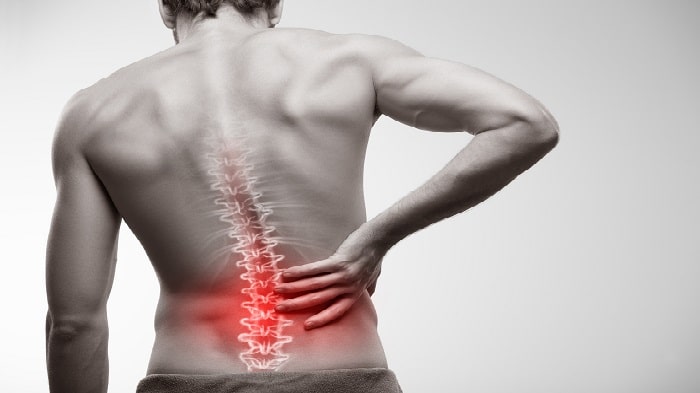Our joints are one of the most underrated parts of our body when in fact, they are essential to performing countless daily activities such as walking, running, and jumping, among others. However, most people take them for granted and continue to lead poor lifestyles. Joints are the basic foundations of the body that allow us to move freely without discomfort, which is why they are equally important as the other parts of our body.
Good thing we don’t have to be scared of the vitality of our joints. With the right knowledge, lifestyle, and proactive care, you can have them functioning optimally regardless of your age. This can be possible with the best osteoarthritis supplements. Depending on your doctor’s recommendation, you can further enhance your overall health and well-being with nutrient-rich Spirulina supplements to boost your body’s ability to repair and maintain itself.
Joint Health 101: Understanding, Preventing, and Treating Joint Issues
Our joints are crucial connectors that allow us to bend, flex, and move with grace and ease. These complex structures facilitate a wide range of motions, from the simplest everyday tasks to the most athletic performances.
However, when joint health is compromised, it can lead to discomfort, pain, and limitations that affect our quality of life. To know how to maintain joint health, it’s essential to understand the mechanisms behind joint function, explore common causes of joint issues, and equip yourself with practical knowledge to maintain healthy joints, prevent problems, and seek effective treatment when needed.
Mechanisms Behind Joint Function
Joints are the intricate and highly functional intersections where bones meet and movement is made possible. These allow our bodies to bend, rotate, and articulate, providing the foundation for virtually every physical activity we perform. Below are mechanisms that support optimal joint function:
- Articular Cartilage. At the core of joint function lies articular cartilage, a smooth and elastic tissue covering the ends of bones where they form a joint. This cartilage acts as a shock absorber, reducing friction and distributing loads during movement.
- Synovial Fluid. Within the joint capsule, a specialized fluid called synovial fluid bathes the articular cartilage and serves as an exceptional lubricant. This fluid is viscous and has properties similar to motor oil, allowing bones to move with minimal resistance.
- Ligaments are tough, fibrous bands that connect bones and stabilize joints. Acting as living straps, ligaments hold bones in proper alignment, preventing excessive movement and maintaining joint integrity.
- Tendons are connective tissues that attach muscles to bones around a joint. When muscles contract, they pull on tendons, transmitting the force to the bones and causing joint movement.
- Synovial Membrane. The synovial membrane lines the inner surface of the joint capsule and plays a vital role in joint health. This thin membrane secretes synovial fluid, which not only lubricates the joint but also acts as a protective barrier, preventing harmful substances from entering the joint space and ensuring a healthy environment for the articular cartilage.
- Range of Motion. The range of motion allowed by a joint is determined by its structure and type. Different joints have distinct designs to accommodate specific movements. For example, hinge joints (i.e., elbow) enable movement along one plane (bending and straightening), while ball-and-socket joints (i.e., hip) allow for a wide range of motion in multiple directions (e.g., rotation, flexion, extension, and abduction).
Common Causes of Joint Issues
While joints are designed to withstand a significant amount of stress, various factors can contribute to joint issues, leading to discomfort, pain, and reduced mobility. Understanding the common causes behind joint problems empowers us to take proactive steps in preserving joint health. Below are some of the causes of joint issues and practical tips on how to prevent them:
1) Age
One of the most prevalent causes of joint issues is age-related degeneration. Over time, the articular cartilage that cushions the ends of bones may wear down, leading to conditions like osteoarthritis. While we cannot stop the aging process, adopting healthy lifestyle habits can slow down joint degeneration.
2) Overuse and Repetitive Stress
Repetitive stress and overuse of joints can lead to strain and potential injuries. Athletes, manual laborers, and individuals with physically demanding occupations are particularly susceptible to joint issues due to the repetitive motions involved in their activities.
To prevent joint issues, practice proper form and technique when engaging in physical activities. Incorporate rest days into your exercise routine to allow joints time to recover. If you have a physically demanding job, take regular breaks and perform stretching exercises to alleviate stress on your joints.
3) Obesity
Carrying excess body weight places additional stress on weight-bearing joints like the knees and hips. Over time, this can contribute to joint degeneration and increase the risk of osteoarthritis.
So maintaining a healthy weight through a balanced diet and regular exercise is crucial to preventing joint issues related to obesity. Even a modest weight loss can significantly reduce the load on your joints and improve overall joint health.
4) Inflammatory Conditions
Inflammatory conditions such as rheumatoid arthritis and gout can cause joint inflammation, pain, and swelling. These conditions result from the body’s immune system attacking the joints or depositing uric acid crystals in the joints, respectively. While prevention of inflammatory conditions may not always be possible, early diagnosis and appropriate medical treatment can help manage symptoms and slow disease progression.
5) Genetic Predisposition
Genetics can play a role in joint health, with certain individuals being more susceptible to developing joint issues due to their family history. While we cannot change our genetics, understanding our family history can prompt us to take proactive measures to maintain joint health. Following a joint-friendly lifestyle with regular exercise, a balanced diet, and weight management can mitigate genetic predispositions.
Health Supplements for Ultimate Joint Health
Maintaining optimal joint health is essential for enjoying a life of mobility, flexibility, and comfort. While a balanced diet and an active lifestyle play crucial roles in supporting joint function, certain supplements can provide valuable nutrients to further promote joint health. These joint health supplements include the following:
- Glucosamine
- Chondroitin
- Omega-3 Fatty Acids
- Collagen
- Turmeric/Curcumin
- MSM (Methylsulfonylmethane)
- Boswellia Serrata Extract
- Hyaluronic Acid
- Vitamin D
- Ginger Extract
Invest in Your Well-being by Revitalizing Your Joints
Remember that self-awareness and mindfulness are vital companions on the journey toward pain-free living. Embracing joint health begins with the recognition that our bodies are resilient and adaptable, capable of remarkable feats when nurtured with care and compassion.
So step forward with a commitment to taking care of the remarkable mechanics of our bodies. Live a healthy lifestyle and forge a path toward a pain-free life, where each step is a celebration of strength, resilience, and the sheer joy of movement.


















